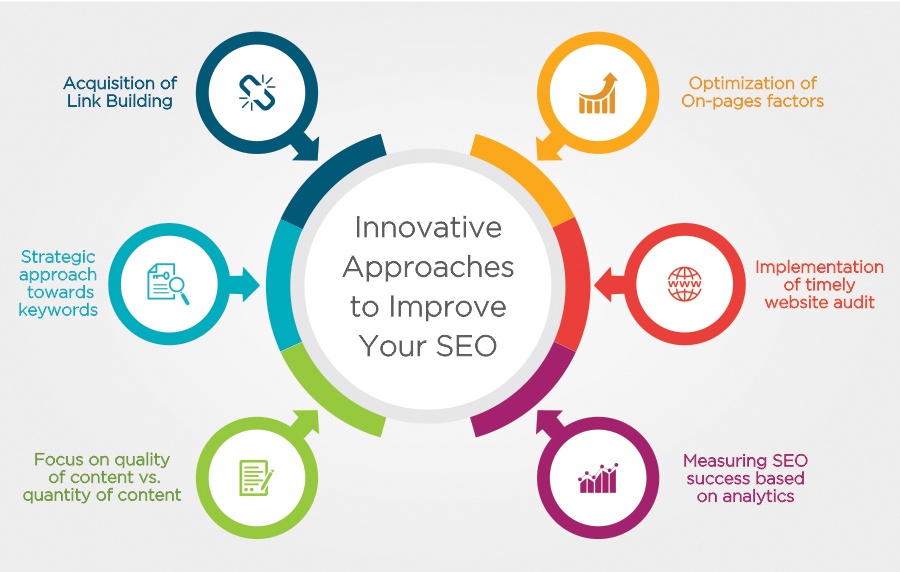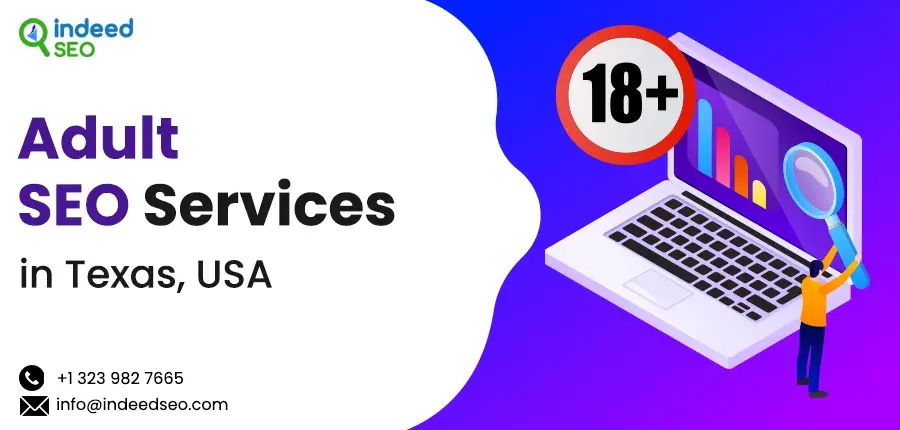To improve website SEO, focus on optimizing content and enhancing site speed. Keyword research and quality backlinks are crucial.
In today’s digital era, standing out in the vast sea of online content requires strategic effort and understanding of SEO fundamentals. Optimizing your website for search engines can dramatically increase visibility, drive traffic, and boost your brand’s credibility. Effective SEO practices involve more than just stuffing articles with keywords or acquiring random backlinks.
It’s about creating valuable content that answers your audience’s questions, using keywords smartly, and ensuring your website offers a seamless user experience. By consistently applying these principles, you can significantly improve your site’s search engine ranking, making it easier for potential customers to find you among the competition. Remember, SEO is not a one-time task but an ongoing strategy to keep your website relevant and accessible.

Credit: roopco.com
The Essence Of Seo In Today’s Digital Landscape
The digital world changes fast. SEO, or Search Engine Optimization, helps websites stay visible. It makes sure your site shows up in search results. This brings more visitors. Let’s dive into why SEO is key today.
Why Seo Matters For Online Success
Imagine a library full of books but no index. SEO is that index. It guides search engines to your site. A well-optimized site gets more traffic. This means more people see your products or services.
- Increases visibility: Your site appears in top search results.
- Boosts credibility: People trust sites that Google ranks high.
- Improves user experience: SEO makes your site user-friendly.
Key Changes In Seo Practices Over The Years
SEO is not static. It evolves. This table shows how SEO has changed.
| Year | Focus |
|---|---|
| Early 2000s | Keywords stuffing, lots of backlinks |
| 2010s | Quality content, mobile optimization |
| 2020s | User experience, voice search, AI |
Now, SEO focuses on quality content and great user experience. It’s about meeting users’ needs fast.

Credit: www.talentedladiesclub.com
Starting With The Basics: Keyword Research
Mastering SEO starts with understanding keyword research. It’s the foundation for optimizing content. This process involves finding words and phrases that people use in search engines. These are terms your target audience searches for.
Tools For Effective Keyword Discovery
The right tools can simplify keyword discovery. They provide data on search volume, trends, and competition. Here are some popular tools:
- Google Keyword Planner: A free tool that gives insights into Google’s vast search data.
- SEMrush: Offers in-depth keyword analysis and competitor intelligence.
- Ahrefs: Known for its extensive backlink and keyword data.
- Moz Keyword Explorer: Provides keyword suggestions and SERP analysis.
Analyzing Competitor Keywords For Insights
Competitor keyword analysis reveals what’s working for others in your niche. Here’s how to do it:
- Identify competitors ranking high for your desired keywords.
- Use tools like SEMrush or Ahrefs to uncover their keyword strategies.
- Look for gaps and opportunities in their keyword usage.
- Adapt and improve upon their tactics for your website.
Optimizing Site Structure For Search Engines
Search engines love well-organized websites. A tidy site structure helps bots crawl your pages efficiently. This can boost your rankings significantly. Let’s dive into making your site’s structure more search-engine-friendly.
Importance Of A Clean Url Structure
URLs are the building blocks of site hierarchy. They guide users and search engines through your site. Clean URLs are short, descriptive, and free from unnecessary parameters. They should include keywords that reflect the page content.
A well-crafted URL structure enhances user experience and improves crawlability. This can lead to better indexing and higher search rankings.
| Before Optimization | After Optimization |
|---|---|
| www.example.com/index.php?page=123 | www.example.com/gourmet-chocolate |
Creating A Sitemap And Its Advantages
A sitemap is a roadmap of your website. It lists all your pages, helping search engines find them. It’s essential for larger sites with many pages.
- Improves crawl efficiency: Search engines can discover all pages, even if internal linking is not perfect.
- Updates search engines: Notifies them about new pages or changes, ensuring fresh content gets indexed.
- Enhances content visibility: Even deep or isolated pages gain exposure.
To create a sitemap, you can use tools like XML Sitemaps or WordPress plugins such as Yoast SEO. Once created, submit your sitemap to search engines via their respective webmaster tools.
Quality Content Creation For Better Engagement
Quality content is key to website SEO success. It draws readers in and keeps them engaged. High-quality, engaging content leads to better user experience and higher search engine rankings. Let’s explore how to craft content that both users and search engines will love.
Crafting Informative And Valuable Content
Great content answers questions and solves problems. It should provide clear, concise information that readers find useful. Use bulleted lists and short paragraphs to make information digestible.
- Identify audience needs
- Research topics thoroughly
- Present fresh, original insights
Ensure all content is fact-checked and up-to-date.
Incorporating Multimedia And Visuals
Images, videos, and infographics can enhance your content. They break up text and add visual appeal. Use high-quality visuals that are relevant to your content.
| Visual Type | Benefits |
|---|---|
| Images | Adds context, breaks monotony |
| Videos | Demonstrates concepts clearly |
| Infographics | Simplifies complex data |
Remember to use alt text for images to improve accessibility and SEO.
Leveraging On-page Seo Techniques
Mastering on-page SEO techniques is key to higher rankings. It tells search engines what your site is about. Let’s dive into some effective strategies.
Meta Tags And Descriptions That Get Clicks
Meta tags and descriptions are your first SEO impression. They must be compelling. Always include target keywords. Keep descriptions under 160 characters. Think of them as a pitch to potential visitors.
| Element | Function | Best Practice |
|---|---|---|
| Title Tag | Shows on search results | 50-60 characters, include keyword |
| Meta Description | Describes page content | Compelling, with a call-to-action |
Header Tags And Keyword Optimization
Header tags structure your content. They make it easy to read. Use H1 for titles. Follow with H2, H3 for sections. Include main keywords in headers for SEO.
- H1: Main title of the page, use once
- H2, H3: Subheadings, for organizing content
- Keywords: Place them in the first 100 words
Remember, use keywords naturally. Stuffing hurts readability and rankings. Focus on providing value. Your audience and search engines will notice.
Building A Strong Backlink Profile
Building a strong backlink profile is key to boosting your website’s SEO. It’s like having a web of roads leading to your site. The more roads, the more visitors. Let’s dive into how to make this web stronger.
Strategies For Acquiring Quality Backlinks
- Guest blogging: Write articles for other websites. It gets your name out.
- Broken link building: Find dead links on websites. Offer yours as a fix.
- Creating shareable content: Make posts people want to share. Think infographics or helpful guides.
- Partnering with influencers: Work with popular online figures. They can link back to your site.
Avoiding Common Link-building Pitfalls
Avoid mistakes to keep your backlink profile clean and effective.
- Buying links: It’s risky and can get your site penalized.
- Excessive link exchanges: Swapping too many links looks spammy.
- Using irrelevant links: Make sure links fit your site’s content.
- Ignoring nofollow links: These links don’t pass SEO juice but are still valuable.
Enhancing User Experience For Seo
User experience (UX) significantly influences SEO. A site that’s easy to use retains visitors longer. This boosts search engine rankings. Focus on speed and mobile responsiveness to improve UX and SEO.
Site Speed And Its Impact On Rankings
Site speed is crucial for SEO. Fast-loading pages rank higher. Users prefer quick access to information. Google uses speed as a ranking factor. Optimize images and minify code to improve load times. Use caching and content delivery networks (CDNs) for better performance.
- Optimize images for faster loading
- Minify CSS, JavaScript, and HTML
- Implement caching for repeat visits
- Use CDNs to decrease load times
Mobile Responsiveness As A Ranking Factor
Mobile responsiveness matters. Most users browse on phones. Google ranks mobile-friendly sites higher. Ensure your site adapts to different screens. Test your website on various devices. Responsive design improves UX and SEO.
| Action | Benefit |
|---|---|
| Adaptive design | Better user experience |
| Flexible images | Seamless display on all devices |
| Readable text | No need for zooming |
| Easy navigation | Boosts engagement |
Tracking Your Progress With Analytics
Tracking your progress with analytics is key to SEO success. Understand where your site stands. Make informed decisions to boost your rankings. Let’s dive into the analytics world.
Using Google Analytics To Monitor Seo Health
Google Analytics is a powerful tool. It tracks website performance. Gain insights into user behavior. Learn which pages get the most traffic. Discover where your visitors come from.
- Acquisition reports show your traffic sources.
- Behavior reports reveal what visitors do on your site.
- Conversion reports track your goals and e-commerce activity.
Set up SEO-specific goals. Monitor your organic search traffic. Watch for trends and patterns. Use this data to check your website’s SEO health.
Adjusting Strategy Based On Data Insights
Data insights help tweak your strategy. Look at the analytics regularly. Spot opportunities for improvement. Identify issues that need fixing.
| Metrics | Insights | Action |
|---|---|---|
| Bounce Rate | High rate may indicate poor content or user experience. | Improve page content. Ensure easy navigation. |
| Session Duration | Longer sessions can signal engaging content. | Create more similar content. Keep users engaged. |
| New Sessions | A low number may suggest limited reach. | Expand your audience. Use social media and backlinks. |
Test different strategies. Compare the results. Keep what works. Discard what doesn’t.
Regular analysis is essential. It ensures your SEO strategy stays on track. Use these insights to climb the search rankings.
Staying Current With Algorithm Updates
Staying Current with Algorithm Updates is key to SEO success. Search engines often update their algorithms. These changes can affect website rankings. To maintain visibility online, it’s crucial to adapt and evolve with these updates. Let’s dive into strategies for staying ahead in the SEO game.
Adapting To Search Engine Updates
Search engines aim to provide the best user experience. They tweak algorithms to deliver relevant results. Understanding these changes helps websites stay on top. Below are steps to adapt effectively:
- Monitor SEO News: Follow trusted SEO news sources.
- Analyze Performance: Check analytics to spot trends.
- Implement Changes Quickly: Update your strategy promptly.
Regular website audits identify issues early. Use tools to track rankings and backlinks. Make sure your content aligns with the latest SEO practices.
Future-proofing Your Seo Efforts
To safeguard against future changes, focus on quality. Here’s how to future-proof your SEO:
- Create Quality Content: Write for users, not just search engines.
- Build a Solid Structure: Have a clear, crawlable website structure.
- Stay User-Focused: Prioritize user experience (UX) on your site.
Quality content remains a constant in SEO. Ensure your site is mobile-friendly. Use descriptive, concise meta tags. Aim for fast loading times. By doing so, you prepare for future updates.

Credit: www.practicebuilders.com
Advanced Tactics For Seo Mastery
Mastering SEO requires more than basics. Advanced tactics can set a site apart. These methods boost visibility and improve rankings. Let’s explore some powerful strategies.
Leveraging Structured Data For Rich Snippets
Structured data marks up content for search engines. It helps Google understand page elements. This understanding leads to rich snippets in search results.
Rich snippets enhance visibility and click-through rates. They provide users with quick info. This info includes ratings, prices, and availability.
Use schema.org to find relevant data types. Implement the following with HTML5:
Test your structured data with Google’s Rich Results Test tool.
Implementing Local Seo For Targeted Reach
Local SEO targets specific areas. It connects businesses with nearby customers. This tactic is essential for small businesses and stores.
Google My Business (GMB) is a key tool. Ensure your GMB profile is complete and accurate. Include:
- Name, Address, and Phone (NAP)
- Business categories
- Operating hours
- Up-to-date photos
Encourage customers to leave positive reviews. Respond to reviews promptly.
Include local keywords in your content. For example, “Best coffee in Austin” targets Austin coffee lovers.
Local backlinks also enhance local SEO. Partner with nearby businesses for link exchanges.
Frequently Asked Questions
How Can I Improve Seo On My Website?
To improve SEO on your website, focus on keyword optimization, quality content creation, and mobile responsiveness. Ensure fast loading speeds and secure backlinks from reputable sites. Regularly update your content and use social media to boost visibility.
How Can I Improve My Website Seo Score?
To improve your website’s SEO score, focus on keyword optimization, create high-quality content, enhance site speed, ensure mobile-friendliness, and build quality backlinks. Regularly update content and use social media to boost visibility. Keep track of your SEO progress with analytics tools.
How Do I Make A Good Seo Website?
To create a strong SEO website, focus on keyword-rich content, ensure mobile-friendliness, optimize meta tags, prioritize fast loading speeds, and secure quality backlinks.
How Can I Improve My Google Site Seo?
Optimize your Google site SEO by researching keywords and incorporating them into your content. Ensure your website is mobile-friendly and has fast loading times. Use descriptive titles and meta descriptions for each page. Secure high-quality backlinks and regularly update your site with fresh content.
Conclusion
Boosting your website’s SEO takes effort and strategy. Implement the tips we’ve shared, and watch your site climb the search rankings. Regular audits and updates are key. Start optimizing today, and prepare to see results. Your digital presence is poised to grow.


